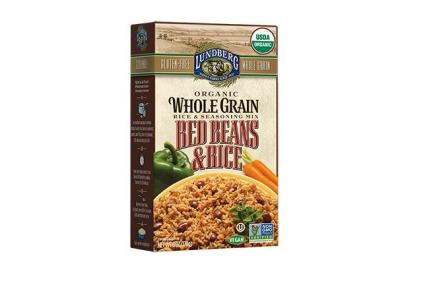Food and beverage industry professionals literally could see the kosher market at Kosherfest, which just held its 25thannual exhibition in New Jersey’s Meadowlands Exposition Center at the end of October. Sponsors Diversified Business Communications and Lubicom Marketing Consulting say this year’s event drew more than 6,500 attendees (up 28% over 2012) and 350 exhibitors.
Show organizers estimate the annual dollar value of kosher products (produced in the United States) at $305 billion. They say there are approximately 10,650 kosher-producing companies and plants, and as many as 200,000 kosher-certified products. They say the number of kosher consumers in the U.S. tops 12 million, and 21% of Americans who regularly or occasionally purchase kosher products -- do so because the items are kosher-certified.
According to ResearchMoz’ market research report “Global Halal Food Market 2012-2016: Industry Analysis, Size, Share, Growth, Trends and Forecast,” the global halal food market will experience a combined annual growth rate of 4.44% through 2016. Researchers attribute the growth to a growing global Muslim population with increased spending power. Meanwhile, The Halal Research Council estimates the worldwide market for halal products will exceed $300 billion in sales this year, as companies around the globe increase their related R&D efforts.
Interestingly, the desire to abide by halal standards also has been a boon to the American kosher foods market. In fact, according to Kosherfest, 16% of Americans who buy kosher products do so in an effort to maintain a halal diet, making it the fourth-most cited reason for buying kosher, behind the 55% of those who eat kosher for health and safety reasons, the 38% who are vegetarians and 35% who simply like the taste or flavor. According to Kosherfest, the dollar value of kosher ingredients sold in the U.S. stood at $370 billion in 2010.
North of the border, the story is the same: “The Specialty Food Market in North America: March 2012,” a report from Agriculture and Agri-Food Canada, pegs Canada’s halal market at an estimated C$1 billion and growing at an annual rate of 13%. Officials also estimate Canadian sales of kosher foods at more than C$500 million.
Realizing the sizable and growing market, as well as the value in maintaining the integrity of those markets, Quebec’s agricultural minister is reportedly looking to tighten regulations for kosher and halal meat production.
“We want the slaughter to happen in the most complete conditions of hygiene and cleanliness,” said Francois Gendron, who reportedly plans to introduce new regulations this fall.
Although there is some debate as to the necessity of altering the regulations (the Canadian Food Inspection Agency oversees the nation’s animal slaughter regulations and has “one of the highest standards of food processing,” notes a spokesperson with Canadian kosher meat company Mehadrin), the importance of maintaining that integrity is clear and absolute.
Food safety, of course, remains a key topic for consumers and key selling point for kosher and halal products. Back in the U.S., meanwhile, it also has been a subject of study by Northern Arizona University and other institutes. These researchers recently found antibiotic-resistant E.coli in chickens from a range of production methods, with the highest numbers in kosher birds. The researchers were not able to explain the larger numbers of E. coli in kosher chickens, nor for that matter, why the levels were equally high in organic chickens versus conventional processed chickens.
Scientists say more study is needed, “especially on kosher,” whose frequency of E. coli was at nearly twice the levels of conventional raw chicken. The authors specifically noted their kosher results “belie the historic roots of kosher as a means to ensure food safety.”
Nevertheless, as evidenced by the range of products on display at this year’s Kosherfest, today’s kosher consumers have a host of options.
For its part, Rachel’s Organic showcased new, free-range chicken, while Manischewitz profiled Kitni, its new Passover line with kosher legume products. For those looking to keep kosher conveniently, Schulz Catering presented a line of two-minute options including Shakshuka, Lentil and Mint salad, as well as Cholent.
While the products on display at Kosherfest naturally positioned themselves around their kosher status, several other recent new product introductions have noted they are kosher -- even if that may not be their prime selling point.
Fresherized Foods has added a range of bean dips under its Wholly Guacamole brand, all of which are all-natural, preservative-free and kosher certified. The line includes such flavors as Taco Bean Dip & Guacamole, Black Bean Dip & Homestyle Guacamole, and Avocado Black Bean & Roasted Corn Dip.
Lundberg Family Farms’ new Organic Whole Grain Rice and Seasoning Mixes are likewise kosher (gluten-free, non-GMO and vegan, as well) in 11 flavors, including Mild Curry Whole Grain Lentils & Rice, Organic Whole Grain Spanish Rice and Organic Wild Porcini Mushroom Whole Grain & Wild Rice.
Back at Kosherfest, officials also spoke about a host of new and interesting options. Introduced for the first time were many new and creative kosher products, including Single Serve k Cup beverages in three flavors -- chai tea, pareve cappuccino and hot chocolate, introduced by Corim Industries. Incidentally, that line won “best in show” honors in a new product competition.
“Who would have believed that kosher sushi would become a basic staple in restaurants, or that there would be a ‘fake’ bacon sausage product -- or for that matter, that nearly 20% of the show would tout gluten-free products?” noted Menachem Lubinsky, Lubicom chairman & CEO.



